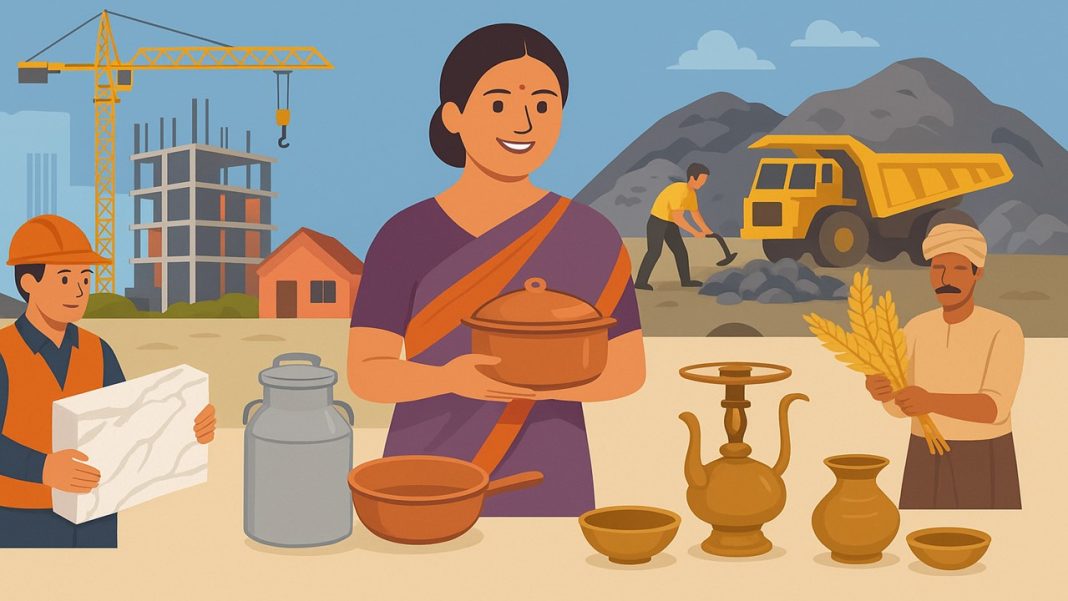GST Rate Cuts in Mining Sector to Boost Housing, MSMEs, and Rural Livelihoods
The 56th GST council meeting was held on September 3-4, 2025, in New Delhi under the leadership of Union Finance and Corporate Affairs Minister Smt Nirmala Sitharaman. In the meeting, the council minister presented their views on the list of proposals given by the Union Government relating to the changes in the rates of GST.
The aim behind making amendments to the GST rates is to provide relief to individuals, common men, and the aspirational middle class and measures for the facilitation of trade in GST. Among these changes in GST rates, the government has also set new GST rates and slabs on items related to the mining sector. These changes in the mining sector are likely to have a positive impact on the housing industry and small-scale enterprises.
According to the new GST rates on the mining sector, marble and travertine blocks and granite blocks will now attract a GST rate of 5%. Earlier, this rate was 12%. This reduction in rate is anticipated to benefit the housing sector, as marble and granite are used in the housing industry in high quantities. In states like Rajasthan, Gujarat, and Karnataka, the granite and marble extraction is taking place. Reduction of GST rates on sand-lime bricks or stone inlay work is likely to lower the cost of construction, especially for low-cost house construction and in rural areas.
GST cuts from 12% to 5% have also been noticed on milk cans made of aluminium and tables, kitchen articles, or other household articles made of copper as well as aluminium. Since such utensils are part of everyday essentials, a GST reduction on them will increase their demand in the market due to a reduction in retail price. People will have more money in their hands and will be able to save money on essential items. Another advantage is that people will avoid buying plastic utensils and will shift to metal utensils; this will make their lives healthier and will increase their life spans. This action will also benefit MSMEs involved in the production of such utensils, as demand will be increased and the market for such items will grow.
Furthermore, GST on brass kerosene pressure stoves has been reduced from 12% to 5%. This will make these basic cooking tools cheaper, helping rural and low-income families get easier access to energy. GST on handicrafts made of brass, copper/copper alloys with nickel/silver plating, and aluminium has also been cut from 12% to 5%. Most of these are made by artisans and small businesses. Lower GST will make their products more competitive and attract more buyers. Since handicrafts reflect India’s culture, this cut also promotes Indian heritage and supports the ‘Make in India’ initiative.
For services related to the Ministry of Mines, GST for the multimodal transport of goods within India has been lowered from 12% to 5% (with limited credit). This will help the mining and mineral industry, especially for iron ore, which often has to be transported over long distances.



